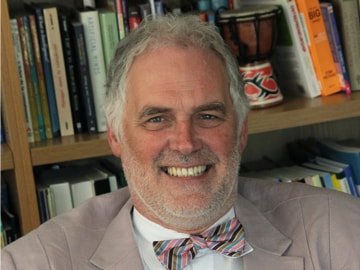
Leadership beyond the rat race
Leadership is lacking in moral strength and compassion for the population
Both animals and humans are inherently empathetic, scientific research shows – but the breakdown of communities leads to individualistic, often unethical leadership. To create the conditions for communities to thrive, a return to empathetic leadership based on self-knowledge, the dignity of difference, and stewardship of creation is needed.
A rat will give up a chocolate treat to help another rat escape a trap.
This extraordinary discovery, observed by University of Chicago (US) neuroscientists, and published in the journal Science, emerged during the latest exploration into inherent morality. And the findings suggest that – contrary to the writings of countless authors and philosophers – empathy is natural in both animals and humans.
Frans de Waal, leading biologist and primate behaviour specialist at Emory University in Atlanta (US), agrees that “humans have a lot of pro-social tendencies” and that the capacity for compassion is natural.
De Waal’s research shows that, in fact, animals of all kinds lean towards “reciprocity, fairness, empathy and consolation” and that this empathy underpins human morality. We are born with the instinct to co-operate with others.
The trouble is, modern lifestyles are making it difficult for us to remain empathetic.
Isolation and overpopulation can damage natural empathy. Urbanisation, particularly in developing economies, produces both these conditions. Fragmented societies and the breakdown of family structures challenge humans’ natural moral tendencies and leave them more solitary, aggressive and competitive - and prone to corruption.
The result is leadership lacking in moral strength and compassion for the population. In the community setting, leadership should centre on service to others rather than the pursuit of personal power.
While De Waal argues that modern urban cultures are destroying the “natural” bent towards empathy, connection and morality in humans, other cultures appear to support it. Many African cultures, for example, have long advocated the philosophy of ubuntu: that one exists through one’s relation to others.
One of the foci of moral leaders today should be on building connections between people, which will automatically facilitate a more moral society, said Archbishop Thabo Magoba, head of the Anglican Church in South Africa, in an address at the University of Cape Town’s Graduate School of Business.
“Do we sit by while corruption grows, nepotism flourishes, freedom diminishes, and inequality deepens; and be happy, heedless, complicit, while narrow self-interest, callous selfishness, and the pursuit of personal gain, of power, status, and material wealth, regardless of the consequences for other people or our planet, become the norm?” he said. “Do we turn a blind eye as cutting corners, dropping standards, sharp practices, become the order of the day?
“Leadership is about responsibility, it is a reciprocal process that entails the leader, the led and the context. It is a transactional and transformational relationship; a collective process of adaptive goal seeking. Leadership, above all, is for the wellbeing and the flourishing of individuals and society as one endeavours to change the world. It is about ubuntu,” he said.
.
So what does this spiritual stewardship – and return to empathetic leadership – entail? It should be based on three basic values, self-knowledge, the dignity of difference, and stewardship of creation.
Self-knowledge ensures a return to one’s most basic nature, as it involves knowing one’s limits, one’s emotions, and being in touch with the values you live by. “One must have personal values – principles that guide one’s actions and decision making,” said Magoba. “It also requires that one reviews or reflects daily on one’s decisions made and actions taken.”
The dignity of difference, too, can be an appreciation of the true nature of things and people, without the individualistic drive to shape them to one’s own model. Essentially, it is the celebration of diversity: accepting others exactly as they are. “Very often we want to knock people into a box or we say the perfect candidate for the job has to tick all these blocks,” said Magoba. “This is a very narrow view; a technocratic view. We should celebrate our differences.”
Stewardship of creation is taking seriously the planet and its resources, respecting “this world as created by God.” Taking responsibility for the planet as a whole, argued Magoba, would automatically grow a sense of community.
Magoba emphasised eight main leadership principles needed to achieve this: self mastery, mentoring others, valuing diversity, sharing vision, taking risks and experimenting, being both vulnerable and mature, delivering results, and always raising awareness. But most importantly, he said, a moral leader is a listener, who empathises with others, seeks consensus, and is “committed to the growth of people and the building of communities as well as is committed to the healing of the soul of this world.”
So, it seems, people are inherently moral, it’s just a matter of shaping our environments to retain social structures and fostering leaders who lead altruistically and with empathy for the greater good.





